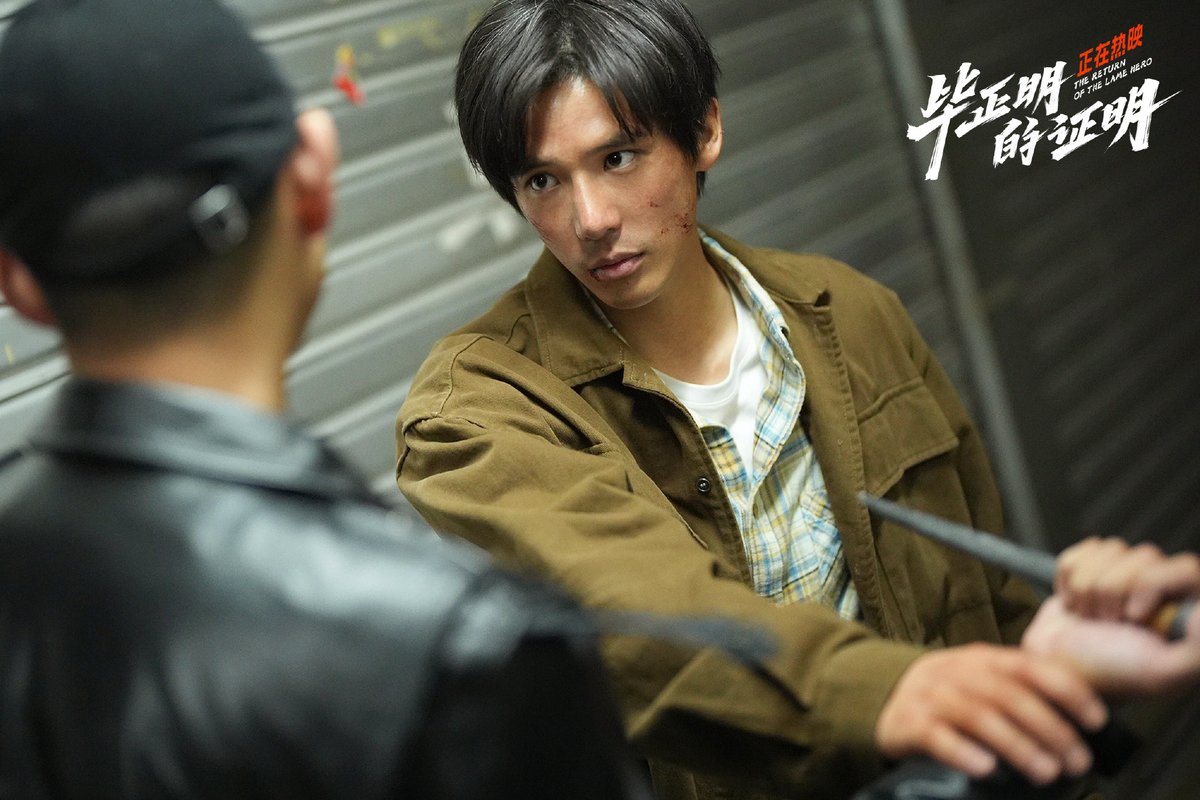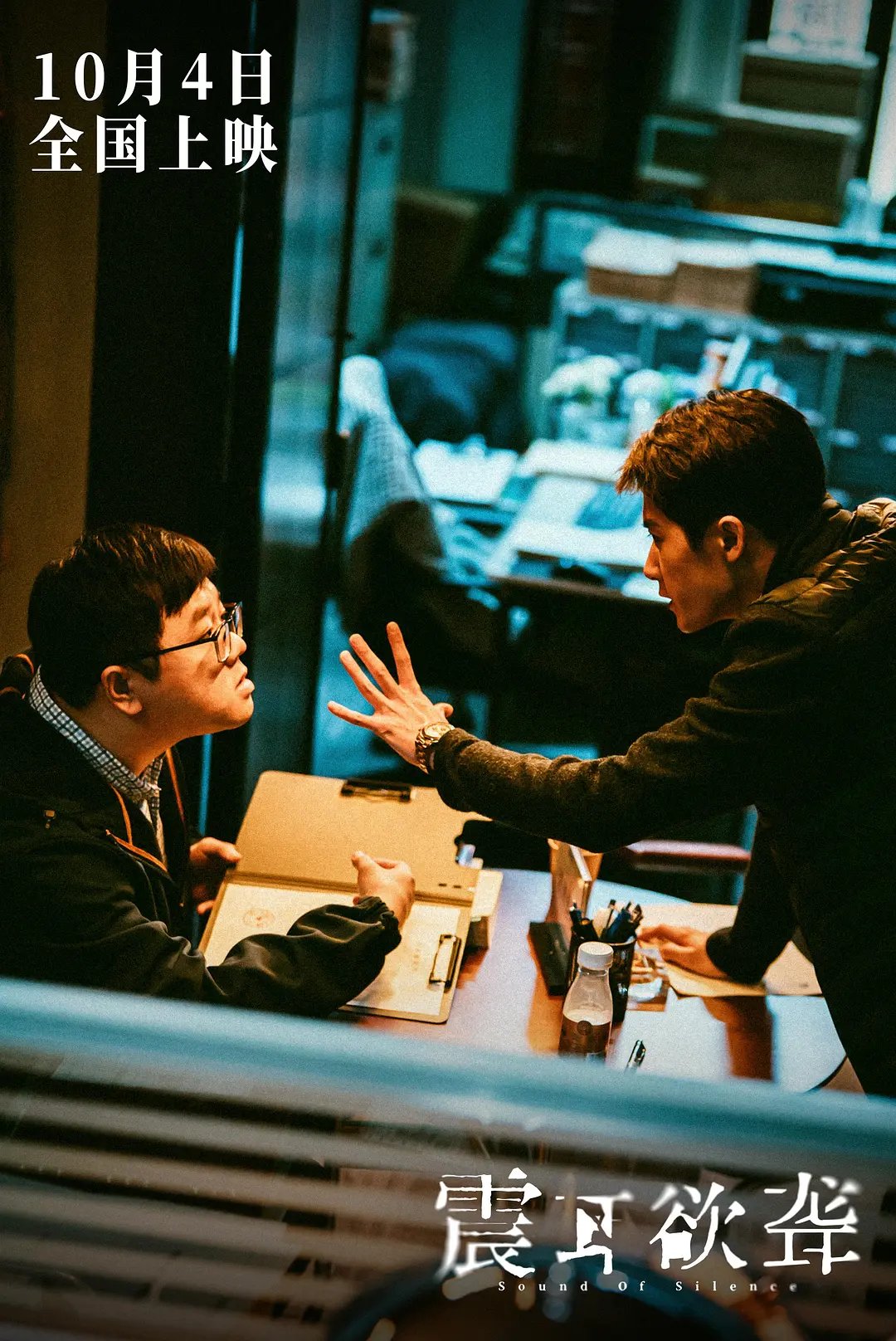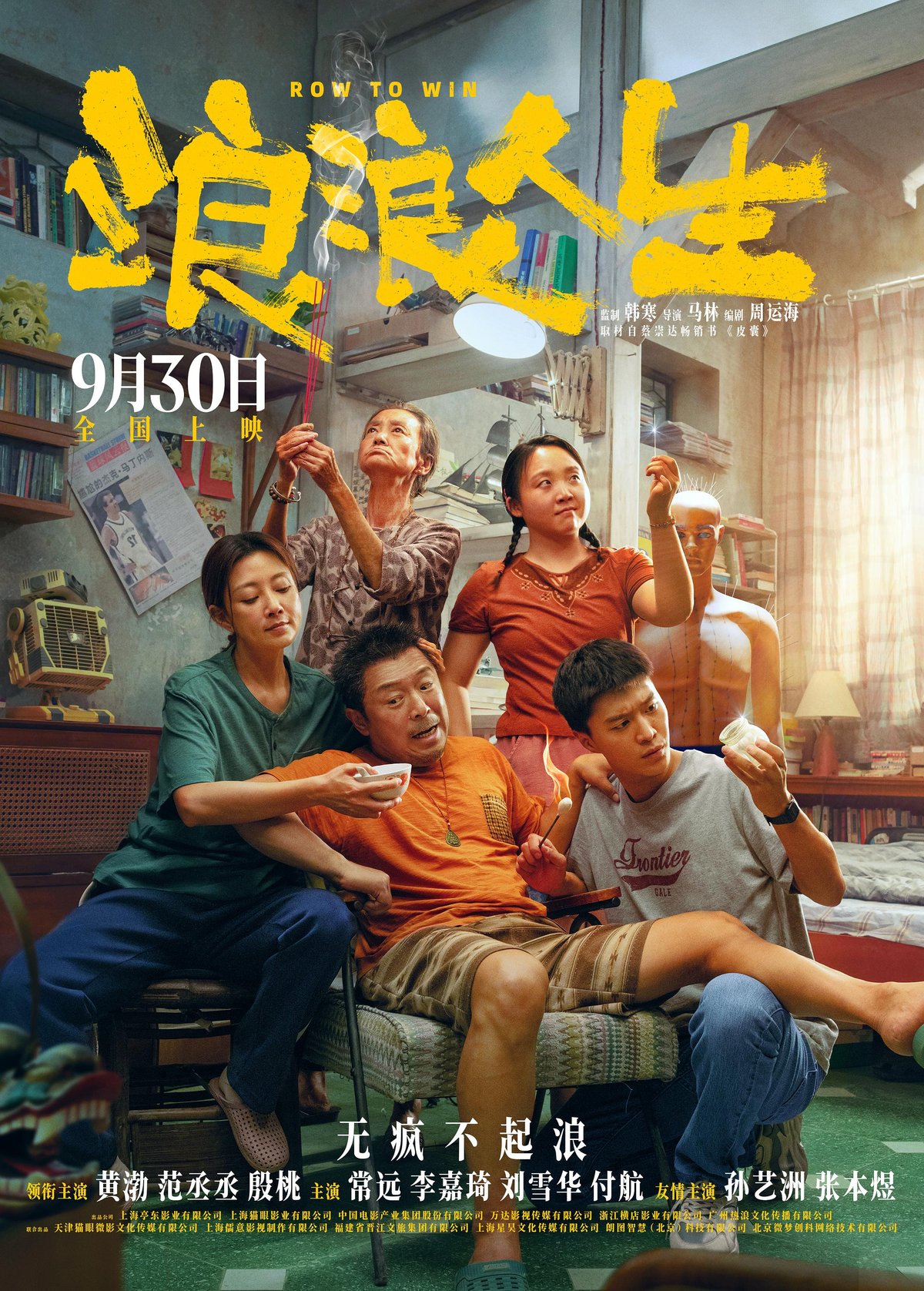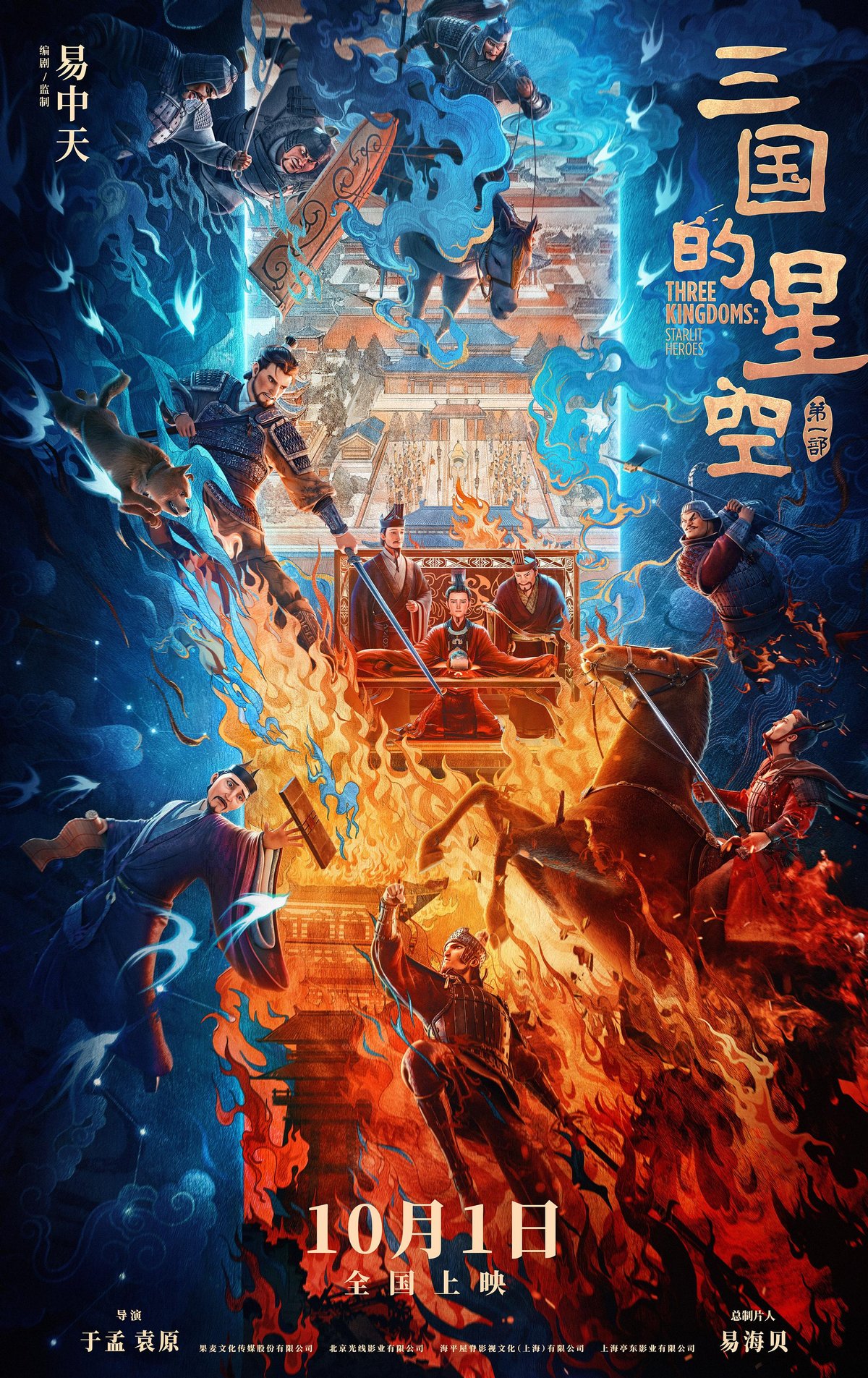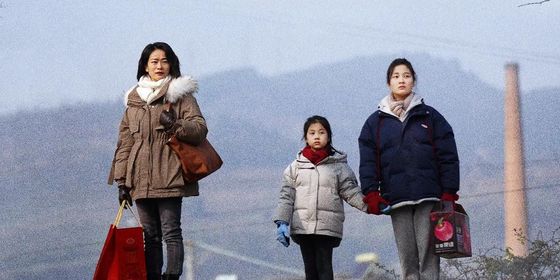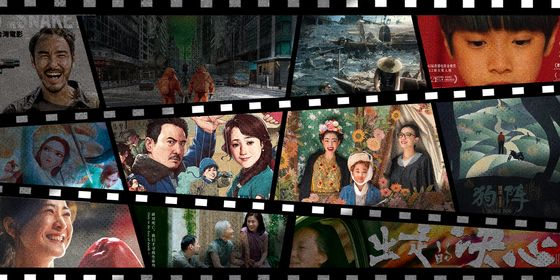From scams targeting the hearing-impaired to the long-awaited Three Kingdoms-themed animation, here are some notable films from this underwhelming National Day holiday season
China’s box office stumbled over the National Day holiday, pulling in only 1.84 billion yuan—less than half of what it earned in 2019 and 300 million yuan short of last year’s total. Despite a record 3.6 million screenings, the eight-day holiday—typically one of the most lucrative periods—saw many empty seats and an underwhelming reception for its lineup.
Topping the box office, unsurprisingly, is director Chen Kaige’s The Volunteers: Peace at Last, the final installment in his patriotic trilogy depicting the Chinese People’s Volunteer Army resisting US forces in Korea during the 1950s. The film brought in 450 million yuan, offering a holiday-appropriate story that resonated with audiences enough to earn a modest 7.3 out of 10 on the review platform Douban—the highest rating among the three installments.
Other notable releases, including famed director Lu Yang’s A Writer’s Odyssey II and actor Takeshi Kaneshiro’s reportedly final film Sons of the Neon Night, all received lukewarm responses at best, and outright criticism at worst. Still, here are a few we think are worth checking out.
The Return of the Lame Hero 毕正明的证明
Graduate Bi Zhengming’s (Wang Anyu) first day as an anti-pickpocket policeman turns into a complete disaster. During the 60-hour train ride from Harbin in the northeast to Guangzhou in the south, he exposes his identity too early, has his wallet stolen in broad daylight, and ends up with a torn leg tendon after a failed solo chase against the thief Huashou (Wang Yanlin). Crippled and facing transfer from his post—his dream job since childhood, inspired by seeing police catch a thief on a train—Bi is determined to prove himself. Disguised as a drifter, he infiltrates the “Rong Clan,” a notorious pickpocket gang, to bring them down from within.
Set in the 1980s and 90s, when theft was rampant on China’s slow, crowded trains, The Return of the Lame Hero revisits a classic crime story from that era, similar to Feng Xiaogang’s 2004 hit A World Without Thieves, with most of its scenes taking place on a train. The film has earned widespread praise for the performances of its two leads and for its vivid, realistic portrayal of the thieves’ underworld—from their slang and techniques to the power struggles within their ranks and the humanity of those entangled in it. In particular, the contrast between Bi and Huashou, who first met as children on a train and witnessed the police arrest together, highlights how people’s fates diverge through choices and circumstance.
However, younger audiences who have grown up with high-speed trains and digital payments have found it difficult to connect with the story’s setting.
The film currently holds a 7.4 out of 10 rating on Douban, the second-highest among National Day holiday releases. Criticism mainly focuses on the shaky motivation behind the protagonist’s passion for police work and the abrupt transformation of a gang member who assisted with the crackdown.
Despite its respectable rating, the film’s box office performance ranked among the lowest, earning less than 52 million yuan by the end of the holiday. Many media outlets and viewers have suggested that the film’s Chinese title—毕正明的证明 (literally “The Proof of Bi Zhengming”)—may have contributed to its weak performance. The title is a simple play on the protagonist’s name, Zhengming, which sounds like the word for “proof” or “demonstration” in Mandarin. It gives little clue about the plot and even led some audiences to mistake the film for a low-quality online release.
Sound of Silence 震耳欲聋
Praised as the dark horse of this year’s National Day box office, the film follows Li Qi (Tan Jianci), a lawyer and hearing person born to deaf parents. He struggles with questions of morality and identity after becoming entangled in a financial fraud case targeting the hearing-impaired with high-interest investment products.
Inspired by the real-life experience of Zhang Qi, China’s first sign language attorney, the film is hailed as the country’s first to spotlight the judicial challenges faced by the deaf community. It traced with Li’s transformation, from exploiting the case for both fame and fortune through cooperation with the scammers, to confronting his conscience after seeing his friend’s bankruptcy and a neighbor’s suicide out of guilt for persuading others to invest. Refusing a hush payment from the scammers, Li ultimately fights to defend the rights of the community.
Produced on a modest 30-million-yuan budget, the film has raked in over 200 million yuan at the time of writing, with a rating of 7.4 out of 10 on Douban. Beyond the courtroom drama, it reveals how the deaf, facing information gaps, communication barriers, and social isolation, are vulnerable to scams, especially during the digital era. Rather than relying on the suffering of victims or sentimentality, the film explores these issues through the lawyer’s moral struggle and the clash between law and conscience.
“Without relying on suspense or plot twists, the film captures the struggles of characters in silence and hesitation, making viewers feel the weight of an overlooked existence,” says one of the most-liked comments on Douban.
Row to Win 浪浪人生
Row to Win ranked fourth at the box office as the only comedy choice during the National Day holiday. The film is adapted from one of the best-selling Chinese books, No More than Skins, an essay collection by writer, former media professional Cai Chongda. Since its publication in 2014, the book has sold over 6 million copies. Many readers resonated with Cai’s recollections of his childhood, growing up with a disabled father and diligent, stubborn mother in a small seaside town.
Rather than selecting a particular story from the collection, the film blended various elements from the book into an independent narrative—a three-generation family navigates life’s challenges while attempting humor. As a result, comedy moments can feel formulaic and forced, making it hard for the audience to sympathize with the family’s hardship due to the sometimes illogical and exaggerated plots and character building. But for those looking for some light-hearted fun and depiction of small-town life and traditional Chinese culture, such as dragon boat racing, in southern China, Row to Win can still be entertaining.
Three Kingdoms: Starlit Heroes 三国的星空第一部
It has been a big year for Chinese animation, with the record-breaking Ne Zha 2 leading the way, followed by well-received titles like The Legend of Hei 2 and Nobody during the summer box office season. Thanks to this strong momentum, the National Day holiday has generated heightened anticipation for Three Kingdoms: Starlit Heroes, the first installment in an animated series retelling the classic tales of the Three Kingdoms.
Written by scholar and author Yi Zhongtian, whose lecture series on the Three Kingdoms period (220 – 280) aired on CCTV’s history channel and was extremely popular in the mid-2000s, the 122-minute film has been praised for its refined animation and meticulous recreation of historical costumes and artifacts. More than 50 museums were consulted to ensure historical accuracy in the film’s design.
Yet these design choices may be the most authentic part of the movie, as its storyline has faced heavy criticism for distorting history and reducing its characters and plot to a simplistic battle of good versus evil. Although Yi claims the script is primarily based on historical texts such as Records of the Three Kingdoms (《三国志》) and Book of the Later Han (《后汉书》), many viewers have found the narrative troubling—especially in its overly positive portrayal of Cao Cao (曹操), a deeply controversial figure. One popular review on Douban jokes that instead of Starlit Heroes, the film should really be called The Legend of Cao Cao, since he seems to be the only hero in the story.
It’s no secret that Yi has long admired Cao. He even inserted himself into the story by voicing a mysterious old man who saves Cao’s life in the movie. In his earlier lecture series, he had famously described Cao as a “lovable warlord.” The film takes this favorable portrayal to new heights, depicting Cao as kind, loyal, and almost flawless, while glossing over the warlord’s historical atrocities—including twice massacring the city of Xuzhou and killing tens of thousands of civilians. In the movie’s climax, the Battle of Guandu, Cao defeats his rival and the film’s villain, Yuan Shao (袁绍), with fewer troops and clever strategy. However, in a major departure from historical accounts, the film shows Cao capturing Yuan and then releasing him, an act many view as out of character, given that, in reality, Cao executed over 70,000 of Yuan’s soldiers while Yuan himself barely escaped.
The reception of the film has been highly polarized, though the film still holds a rather favorable rating of 7.2 out of 10 on Douban, with a moderate 81 million at the box office.







